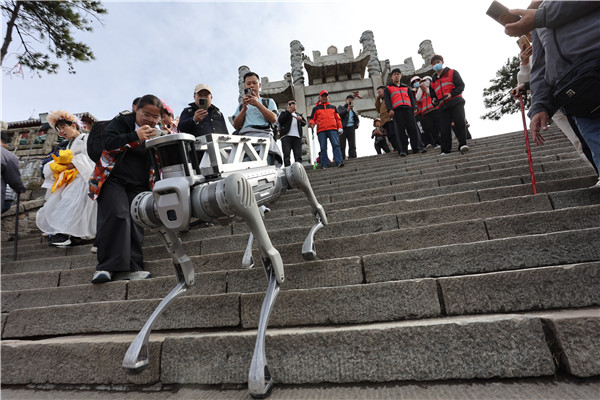Village in Shandong's Tai'an explores new paths toward rural development
This year, Shabu village in Ningyang county, Tai'an, Shandong, has relied on industrial development to support the construction of a beautiful countryside, painting a stunning picture of prosperous industries and a thriving natural environment.
Shabu village has made full use of abandoned land to develop a cicada breeding industry this year.
"Breeding cicadas is similar to farming. You just need to plant the cicada eggs in the soil, as their survival rate is very high, and the technical requirements for breeding are relatively low, making it particularly suitable for breeding under the forest canopy," explained breeder Xu Xingwang.
The cicadas generally have a growth cycle of two to three years, during which they need to be protected from ants, excessive drought, and flooding. They can be continuously sown over the years, providing a rolling income.
Cicadas have high nutritional value and bring considerable profits. Xu calculated that total investment in the base is about 300,000 yuan ($42,366), with 200,000 cicada seedlings planted. After approximately two to three years, the mature cicadas can yield profits ranging from 5,000 to 8,000 yuan per mu (0.06 hectares) at market prices.
Additionally, it is estimated that by 2027, the village collective will be able to distribute annual dividends of up to 50,000 yuan, increasing the villagers' income by around 50,000 yuan. Cicada breeding has turned idle forest resources into drivers of rural vitalization, benefiting both environmental protection and economic development.
With the rapid development of agricultural mechanization, Shabu village has seized the opportunity to establish an agricultural machinery cooperative, providing full industrial chain services in agricultural plowing, planting, pest control, and harvesting, embarking on the path to prosperity.
"We have integrated more than 30 sets of machinery, established a professional agricultural machinery service team, and provided one-stop services for plowing, planting, and harvesting, charging service fees 20 percent to 30 percent lower than market prices, resulting in collective income growth and benefits for the people," explained Wang Quan, Party secretary of Shabu village.



 China-US youth take on the peak of Mount Tai
China-US youth take on the peak of Mount Tai Dongping Lake: Paradise for plants, animals
Dongping Lake: Paradise for plants, animals Robot dog becomes highlight of Mount Tai
Robot dog becomes highlight of Mount Tai

